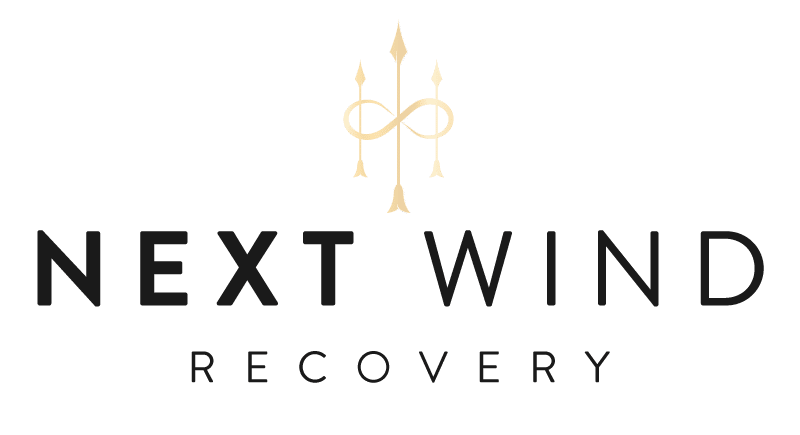The journey to recovery from addiction is a complex and challenging process. One of the obstacles that may arise along this path is transfer addiction. This phenomenon, often overlooked, can significantly hinder the recovery process, leading to new addictive behaviors that replace the original ones.
Next Wind Recovery is a residential inpatient rehab in New Jersey designed to support clients with personalized treatment plans and promote lasting recovery. The clients at Next Wind Recovery work with medical professionals to ensure holistic healing.
Speak with a medical professional about transfer addiction at Next Wind Recovery.
Understanding Transfer Addiction
Transfer addiction, often interchangeably used as substitute addiction or addiction hopping, is a phenomenon where an individual replaces one addictive behavior with another during recovery. This replacement often happens because the new addiction serves a similar function as the original one, providing the same mood-altering effects or satisfying the same psychological needs.
While the concept of transfer addiction may seem counter-intuitive, it is a common occurrence in addiction recovery. As individuals strive to overcome one form of addiction, they may unknowingly adopt another addictive behavior as a coping mechanism. In essence, transfer addiction manifests the complex nature of addiction itself, reflecting the brain’s propensity towards addictive behaviors.
Identifying Transfer Addiction
Identifying transfer addiction can be challenging, considering the phenomenon’s nuanced nature. Often, the new addictive behavior may appear harmless, especially in comparison to the original addiction. For example, someone recovering from a drug addiction may start engaging excessively in activities like exercise or video gaming. While these activities are generally healthy or harmless, they can become problematic when they begin to take precedence over other aspects of the individual’s life, just like the original addiction did.
Critical indicators of transfer addiction can include:
- Preoccupation with the new behavior
- Inability to control the new behavior
- Continued engagement in the new behavior despite adverse consequences
- Neglect of responsibilities and relationships due to the new behavior
- Experiencing withdrawal symptoms when unable to engage in the new behavior
The Science Behind Transfer Addiction
The occurrence of transfer addiction can be traced back to the neurobiological underpinnings of addiction. At its core, addiction is driven by the brain’s reward system. Addictive substances and behaviors stimulate the release of neurotransmitters like dopamine, creating a sense of pleasure or euphoria. Over time, the brain becomes accustomed to these heightened dopamine levels, leading to the development of tolerance and dependence.
When an individual ceases the addictive behavior during the recovery process, the brain’s reward system undergoes a period of adjustment. During this time, the brain may seek other sources of dopamine stimulation, leading to the development of new addictive behaviors.
Transfer addiction can manifest in various forms, depending on the individual’s personal and environmental factors. Some of the common types of transfer addiction include substance to substance, substance to behavior, or behavior to behavior.
The Dangers of Transfer Addiction
Transfer addiction can pose significant challenges and risks in the recovery process. Firstly, it can undermine the progress made in overcoming the original addiction. By replacing one habit with another, the underlying issues that contribute to addictive behaviors remain unaddressed. This can lead to a vicious cycle of addiction, hampering the recovery process and leading to feelings of frustration and hopelessness.
Moreover, transfer addiction can also lead to the development of additional health risks, depending on the nature of the new obsession. For instance, excessive exercise can lead to physical injuries, while compulsive shopping can result in financial distress.
Preventing and Managing Transfer Addiction
Preventing and managing transfer addiction is crucial for a sustainable recovery process. Here are some strategies that can be effective:
- Comprehensive Treatment Approach: Emphasizing a holistic treatment approach that addresses not just the addictive behavior but also the underlying psychological issues can help reduce the risk of transfer addiction.
- Education and Awareness: Raising awareness about transfer addiction can empower individuals in recovery to be vigilant about potential substitution behaviors.
- Coping Skills Training: Developing healthy coping skills can equip individuals to manage stress and anxiety without resorting to addictive behaviors.
- Continuous Monitoring: Regular check-ins and follow-ups can help identify early signs of transfer addiction, enabling timely intervention.
- Support Networks: Strong support networks, including peer support groups and family, can provide the necessary emotional support and encouragement during recovery.
Seeking Professional Help with Next Wind Recovery
If you or a loved one are struggling with addiction and concerned about the risk of transfer addiction, seeking professional help is crucial. At Next Wind Recovery, we offer a comprehensive treatment facility designed to support individuals through their recovery journey. Our clients work towards stability and sobriety through individualized treatment plans that promote holistic healing of the mind, body, and soul.
Our treatment methods encompass traditional and alternative approaches, allowing clients to work through dual-diagnosis treatment and focus on reclaiming their lives. By understanding the risks of transfer addiction and integrating this knowledge into our treatment plans, we strive to provide the most effective support to our clients.Speak with a treatment counselor at our top-rated drug rehab in New Jersey today to learn more about the benefits of dual diagnosis treatment and the dangers of transfer addiction. Your journey towards a healthier, addiction-free life is just a step away. The path may be challenging, but recovery is within reach with the proper support and guidance.








